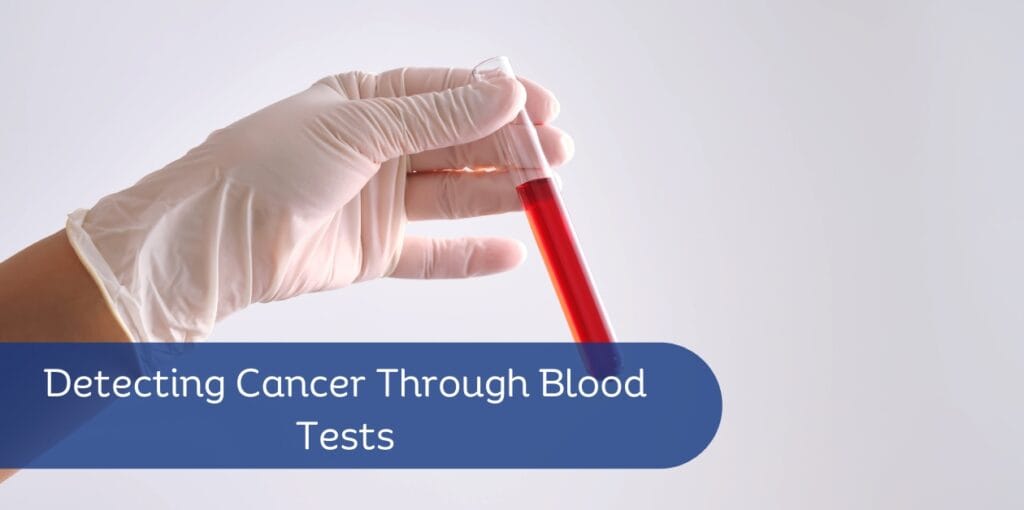Detecting Cancer Through Blood Tests: An In-Depth Guide

Blood tests have become an essential tool in the early detection and management of cancer. While not all cancers can be detected through blood tests alone, these tests can provide critical information that helps in diagnosing and monitoring the disease. This blog will explore the various types of blood tests used in cancer detection, their benefits, limitations, and the latest advancements in this field.
Types of Blood Tests for Cancer Detection
1. Complete Blood Count (CBC)
- Purpose: A CBC measures the levels of different blood cells, including red blood cells, white blood cells, and platelets.
- Cancer Detection: Abnormal levels of these cells can indicate blood cancers such as leukemia and lymphoma. For example, a high white blood cell count might suggest leukemia, while low red blood cell counts could indicate anemia caused by cancer.
2. Tumor Marker Tests
- Purpose: These tests measure the levels of specific proteins or substances produced by cancer cells.
- Common Markers:
- Prostate-Specific Antigen (PSA): Elevated levels can indicate prostate cancer.
- Cancer Antigen 125 (CA 125): High levels may suggest ovarian cancer.
- Carcinoembryonic Antigen (CEA): Used to monitor colorectal cancer.
- Limitations: Tumor markers are not definitive for cancer diagnosis as they can also be elevated in non-cancerous conditions.
3. Blood Protein Tests
- Purpose: These tests, such as electrophoresis, analyze the proteins in the blood.
- Cancer Detection: They can help diagnose multiple myeloma by identifying abnormal proteins produced by cancerous plasma cells.
4. Circulating Tumor Cell (CTC) Tests
- Purpose: These tests detect cancer cells that have broken away from the primary tumor and are circulating in the bloodstream.
- Usage: Primarily used for monitoring the spread of cancers like breast, colon, and prostate cancer.
5. Liquid Biopsies
- Purpose: A liquid biopsy tests for fragments of DNA from cancer cells in the blood.
- Advancements: This non-invasive test can detect genetic mutations and help in tailoring personalized treatment plans.
Benefits of Blood Tests in Cancer Detection
- Early Detection: Blood tests can detect cancer at an early stage, which is crucial for successful treatment.
- Non-Invasive: Most blood tests are minimally invasive compared to traditional biopsies.
- Monitoring: They are useful for monitoring the effectiveness of treatment and detecting recurrences.
- Guiding Treatment: Blood tests can provide information about the genetic makeup of the cancer, helping doctors choose the most effective treatments.
Limitations and Challenges
- Not Definitive: Blood tests alone cannot definitively diagnose most cancers. They are usually part of a broader diagnostic process that includes imaging and tissue biopsies.
- False Positives/Negatives: There is a risk of false positives (indicating cancer when there is none) and false negatives (failing to detect cancer).
- Variability: Normal ranges for blood test results can vary between individuals, making interpretation challenging.
Latest Advancements in Blood Tests for Cancer
1. Multi-Cancer Early Detection (MCED) Tests
- Innovation: These tests can detect multiple types of cancer from a single blood sample by analyzing DNA and proteins from cancer cells.
- Potential: They hold promise for early detection of cancers that are currently hard to diagnose early, such as pancreatic and ovarian cancers.
2. Genomic Testing
- Advancement: Genomic tests analyze the genetic material of cancer cells found in the blood, providing insights into the mutations driving the cancer.
- Application: This information can be used to develop targeted therapies that are more effective and have fewer side effects.
3. Artificial Intelligence (AI) and Machine Learning
- Role: AI and machine learning algorithms are being developed to analyze blood test results more accurately and predict cancer risk.
- Impact: These technologies can improve the accuracy of blood tests and help in early detection and personalized treatment planning.
Conclusion
Blood tests are a valuable tool in the detection and management of cancer. While they have limitations and are not a standalone diagnostic method, they provide critical information that can guide further testing and treatment. Advances in technology, such as liquid biopsies and multi-cancer early detection tests, are enhancing the capabilities of blood tests, making them more accurate and comprehensive. As research continues, the role of blood tests in cancer detection is likely to expand, offering hope for earlier diagnosis and better outcomes for patients.

Dr. A. Venugopal
Clinical Director & HOD Medical Oncology Senior Consultant Medical Oncologist & Hemato-Oncologist
About Author
Dr. A. Venugopal
MD (General Medicine), DM (Medical Oncology), MRCP – SCE Medical Oncology (UK), ECMO (Switzerland).
Dr A. Venugopal is One of the best medical oncologist and Hemato Oncologist in hyderabad, currently serving as the Head of the Department and Senior Medical Oncologist, Hemato Oncologist at Pi Health Cancer Hospital in Gachibowli, Hyderabad. He brings over 15 years of extensive experience in the field of Oncology.
